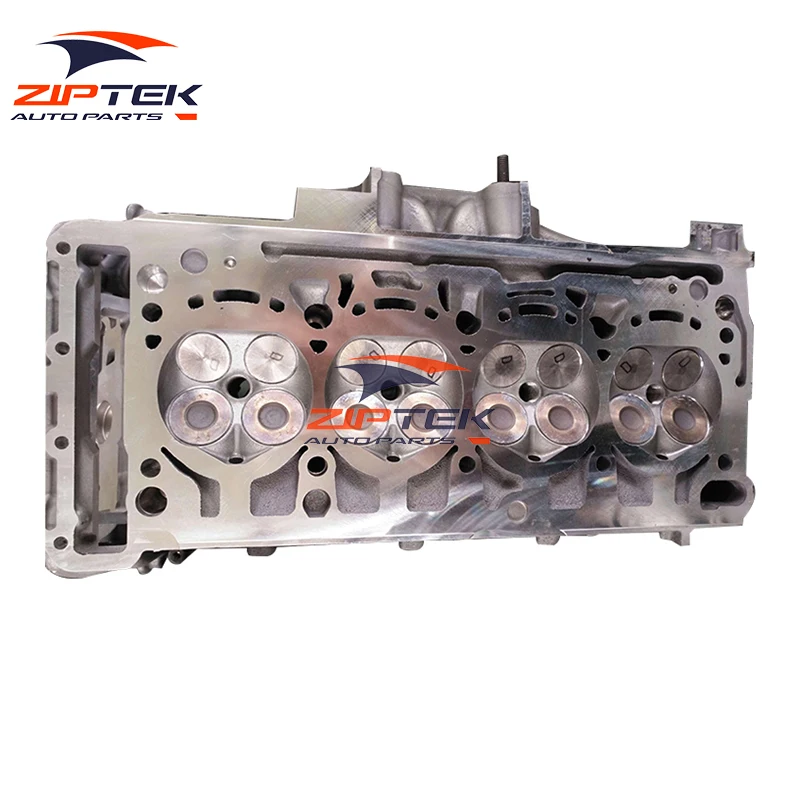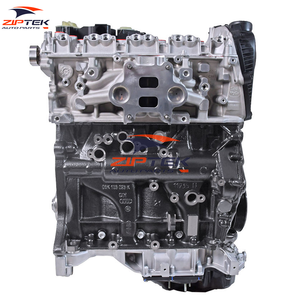Your Ultimate Source for Amarok Engine for Sale-- Trusted Engines for each Need
Essential Factors To Consider and Tips for Choosing the Right Engine for Your Demands
Picking the appropriate engine is a diverse decision that requires cautious consideration of different factors to ensure ideal efficiency for your specific needs. The intricacies of engine selection prolong past these fundamentals, triggering a more detailed exam of vital components that can inevitably impact your fulfillment and success.
Determine Your Function
Determining your objective is a crucial very first step in choosing the best engine for your requirements. Understanding the specific application you have in mind will assist your decision-making procedure and guarantee that you choose an engine that straightens with your functional requirements. Whether you need an engine for an industrial automobile, industrial equipment, or a recreational job, each situation demands different efficiency qualities and capacities.
Think about the environment in which the engine will certainly operate. Will it undergo heavy lots, extreme temperature levels, or extended usage? Evaluating these elements will certainly help you determine the required power result, fuel efficiency, and durability required to meet your purposes.
Furthermore, think of the long-lasting ramifications of your choice. Budget restrictions, upkeep requirements, and availability of components are vital considerations that will certainly influence your general contentment and functional performance.
Inevitably, articulating your purpose will simplify the choice procedure and empower you to make an educated decision. By plainly defining your goals, you can evaluate possible engines more efficiently and pick one that not only satisfies your current demands yet additionally supports your future objectives.
Evaluate Engine Specifications
Once you have plainly articulated your function, the next step is to evaluate engine specifications. This process includes a complete evaluation of various technical information that can significantly influence performance and viability for your intended usage.
Begin by examining the engine's horsepower and torque ratings. Horse power is important for determining the engine's capability to carry out job, while torque is important for comprehending how well it can deal with heavy lots or velocity. In addition, think about the engine displacement, as it typically associates with power output and effectiveness.
Next, analyze the engine typeâEUR" whether it is a gas, diesel, or alternate fuel engineâEUR" as each kind has distinctive qualities and applications. Focus on the engine's configuration (e.g., inline, V-type), as this can influence dimension, weight, and general performance.
One more vital element is the engine's cooling system, which can affect integrity and upkeep demands. Assess the producer's track record and service warranty offerings, as these can provide insights into long-lasting performance and support. Extensively evaluating these requirements will assist ensure that you pick an engine that aligns with your certain requirements and operational goals.
Think About Fuel Effectiveness
Fuel performance is a vital element to take into consideration when picking an engine, as it directly impacts functional expenses and ecological sustainability. An engine's fuel efficiency is typically gauged in miles per gallon (MPG) for lorries or in specific fuel intake (SFC) for airplane and aquatic engines. Greater fuel efficiency not only reduces the quantity of gas consumed yet likewise reduces greenhouse gas discharges, making it a liable selection for eco-conscious consumers.
When assessing engine options, it is vital to evaluate the driving problems and meant usage. Engines optimized for freeway driving may show far better fuel performance compared to those made for stop-and-go web traffic. In addition, take into consideration the engine's technology, such as turbocharging or hybrid systems, which can significantly improve fuel effectiveness.

Assess Maintenance Needs
Beginning by evaluating the supplier's recommended upkeep intervals and treatments. Some engines might require more regular oil changes, filter substitutes, or specialized servicing, which can impact your operational downtime. Additionally, think about the schedule of parts and the ease of getting them. Engines with extensive appeal top article typically have bulks schedule, minimizing lead times during fixings.
One more crucial element is the technical competence needed for upkeep. Some engines might require specific training for technicians, which might restrict your alternatives for service providers. Evaluate whether the engine's style allows for easy accessibility to components often requiring upkeep, as this can substantially influence labor expenses.
Spending Plan Your Financial Investment
Understanding upkeep needs is simply one element of picking the best engine; financial factors to consider play an equally important role (amarok engine for sale). Developing a clear budget plan is important, as it influences not only the first purchase rate however also long-lasting operational prices
When budgeting, think about both the in advance expenses and continuous costs such as fuel performance, maintenance, and possible repair work. A relatively budget-friendly engine may incur higher prices in time as a result of bad fuel economic situation or regular maintenance needs. Additionally, assess the schedule and price of extra parts, along with the guarantees provided by makers, which can supply economic defense versus unpredicted costs.
It is likewise smart to variable in possible financing choices or renting arrangements, which can relieve instant economic problems. Balance your need for innovative features with your spending plan constraints, ensuring that you purchase an engine that satisfies your performance needs without endangering monetary stability.
Ultimately, a well-shaped budget will empower you to make educated choices, aligning your engine choice with both your financial capacities and operational needs, resulting in a more sustainable investment over time.

Conclusion
In final thought, selecting the appropriate engine click here to read requires a detailed understanding of details requirements and applications. Mindful evaluation of engine requirements, gas efficiency, and upkeep demands is crucial for educated decision-making.
Gas effectiveness is an important element to think about when picking an engine, as it directly influences functional costs and ecological sustainability. An engine's fuel efficiency is commonly determined check out here in miles per gallon (MPG) for vehicles or in details fuel consumption (SFC) for aircraft and marine engines. Diesel engines normally provide much better fuel performance than fuel engines. Eventually, picking an engine with a strong focus on fuel performance can lead to substantial lasting savings and contribute positively to environmental efforts. Mindful analysis of engine requirements, fuel performance, and upkeep requirements is essential for informed decision-making.